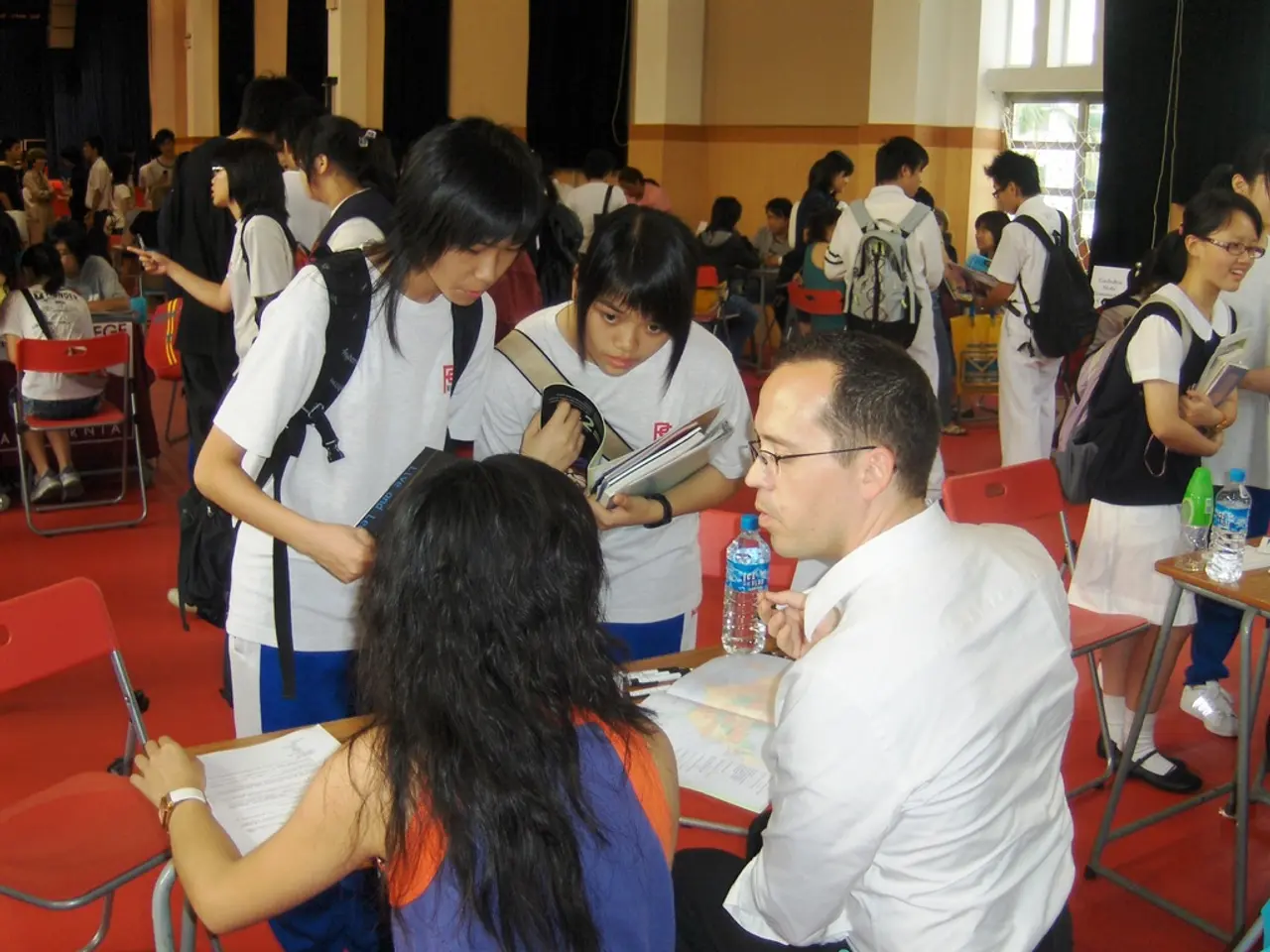Strategies for Minimizing Summer Learning Decline in Students:
Summer break is an exciting time for children, but it can also pose a challenge for maintaining academic progress. A phenomenon known as summer learning loss affects many students, particularly in mathematics, with studies showing that students can lose between 20 and 30 percent of the progress made during the school year [1]. However, with the right strategies, parents and educators can effectively prevent summer learning loss and even foster academic growth.
One of the key approaches to combating summer learning loss is encouraging regular reading. Research shows that children who do not read over the summer can lose reading skills equivalent to an entire grade level [1]. To counteract this, it's recommended that children read at least six books during the summer to help maintain or even improve their reading skills [1]. Allowing children to choose books they enjoy increases their engagement and benefits their learning [1].
Incorporating writing activities is another effective strategy. Writing about summer experiences, journaling, and other writing exercises help preserve literacy skills. This remains critical even as typing becomes more common, with encouraging handwriting helping maintain this skill [2][4].
When it comes to mathematics, regular practice is key. Practice can include independent work, parental involvement, or game-based learning. Keeping math practice fun and interactive, such as through educational board games or online activities, enhances motivation [1][3].
Short, active learning sessions are also beneficial. Engaging students in active learning two to three times per week, with sessions brief (15–30 minutes) to avoid overwhelming students while ensuring consistent practice, is a recommended approach [2].
Making learning fun is essential. Educational games (both online and offline) provide enjoyable learning experiences in reading, math, science, and history. Everyday experiences, like discussing shapes and colors during travel, stimulate foundational skills [1][2].
Maintaining consistency over intensity is more effective than sporadic intense study sessions [5]. A flexible schedule that fits the family’s routine and emphasizes consistent learning is key.
In addition to these strategies, utilising public library programs or summer learning centers can provide structured learning opportunities. For students who are falling behind, tutoring or academic coaching may be beneficial.
The International School of Ho Chi Minh City focuses on learning that extends beyond the classroom, promoting inquiry, collaboration, and reflection. Project-based activities bring school subjects into daily life and allow students to plan, create, and solve problems. These programs can combine creativity, academics, and personal growth, including camps in robotics, arts, languages, or athletics.
Encouraging daily reading routines can help students return to school with stronger language skills. When students engage meaningfully during summer, they return to school with confidence, clarity, and momentum. Keeping math skills sharp with real-world problems can help reinforce fluency and problem-solving skills.
Summer offers space for students to explore freely and build independence through self-directed learning, such as personal projects. Real-world problem-solving activities help reinforce math skills and build confidence in applying math outside the classroom.
Inquiry-based learning, such as preparing students to ask questions, set goals, and explore learning independently, can lead to better retention across long breaks. Supporting social and emotional growth during summer by establishing clear routines, having family conversations, and conducting emotional check-ins is also important.
Technology can support learning when used with purpose, offering interactive lessons, creative challenges, and opportunities for independent practice. Encouraging students to keep a daily journal, practice gratitude, and join group activities that promote teamwork can further support their learning during the summer months. Educational websites or apps can introduce basic coding, encourage digital storytelling, or support vocabulary and subject review.
By combining these strategies—regular reading and writing, active math practice, enjoyable game-based learning, brief but frequent sessions, and consistent scheduling—parents and educators can effectively prevent summer learning loss and even foster academic growth during the break [1][2][3][4][5].
- To combat summer learning loss, regular reading is a key approach, with children reading at least six books during the summer to maintain or improve reading skills.
- Encouraging handwriting, writing about summer experiences, and journaling help preserve literacy skills and remain critical even in the era of increasing typing.
- In mathematics, regular practice is vital, with fun, interactive activities like educational board games or online activities, fostering motivation and helping maintain math skills.
- Short, active learning sessions of 15–30 minutes, two to three times a week, provide consistent practice without overwhelming students.
- Making learning fun through educational games, daily projects, or real-world problem-solving activities can lead to better retention and reinforce foundational skills.
- Technology, when used wisely, offers interactive lessons and opportunities for independent practice, supporting learning during the summer months and promoting personal growth.







